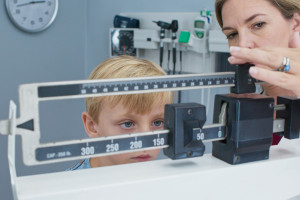Confused with baby blues. Pregnancy program not properly implemented

- - There are two moments during pregnancy when the doctor and midwife are obliged to conduct a screening test for depression - reminds Prof. Diana Massalska
- Despite this, the programme is not properly implemented and limited access to mental health specialists is a serious barrier.
- - The path of care for the patient must be clear and simple, so that when women overcome their resistance and want to seek help themselves, it is available to them - the expert points out.
It is estimated that over 70% of mothers who gave birth in the years 2019-2024 did not undergo mandatory risk assessment for perinatal depression. About how important it is, where to seek help and how to counteract the trivialization of the mental health problem of future mothers, Rynek Zdrowia talked during the Women's Health Forum in Katowice with Dr. Hab. n. med. and n. o zdr. Diana Massalska, prof. CMKP from the 2nd Clinic of Obstetrics and Gynecology and the Department of Obstetrics and Pathology of Pregnancy at the Warsaw Institute of Women's Health.
The expert points out that the psychological problems of pregnant women are still being downplayed. - It is said that the patient experiences baby blues, or postpartum sadness - she points out.
Meanwhile, it is estimated that perinatal depression may affect about 10% of women during pregnancy and up to 30% after delivery. The standards for the organization of perinatal care recommend that the midwife or doctor taking care of the pregnant woman assess the risk and severity of depression symptoms in the woman twice - between the 11th and 14th week of pregnancy and between the 33rd and 37th week.
- If the results are incorrect, they should refer the patient to a psychologist, and if depression is suspected, to a psychiatrist. We know, however, that women encounter many difficulties related to improper implementation of the program, lack of access to psychologists and psychiatric care, but also to their own resistances - the expert points out.
- Women and their families often consider perinatal depression a taboo and stigmatizing topic, and as a result, they do not seek adequate care or are unable to obtain it. In addition, there is a belief that antidepressants can harm a child during pregnancy or breastfeeding, which is completely at odds with current medical knowledge - emphasizes Prof. Massalska.
According to the expert, there should be greater control over the implementation of the depression screening program for pregnant women and after childbirth, as well as a path for further care should be designed.
- Patients with depression will be less likely to seek help, she emphasizes. - This path of care for the patient must be very clear and simple, so that when women overcome their resistance and want to seek help, it is available to them, she points out.
Copyrighted material - reprint rules are specified in the regulations .
rynekzdrowia








